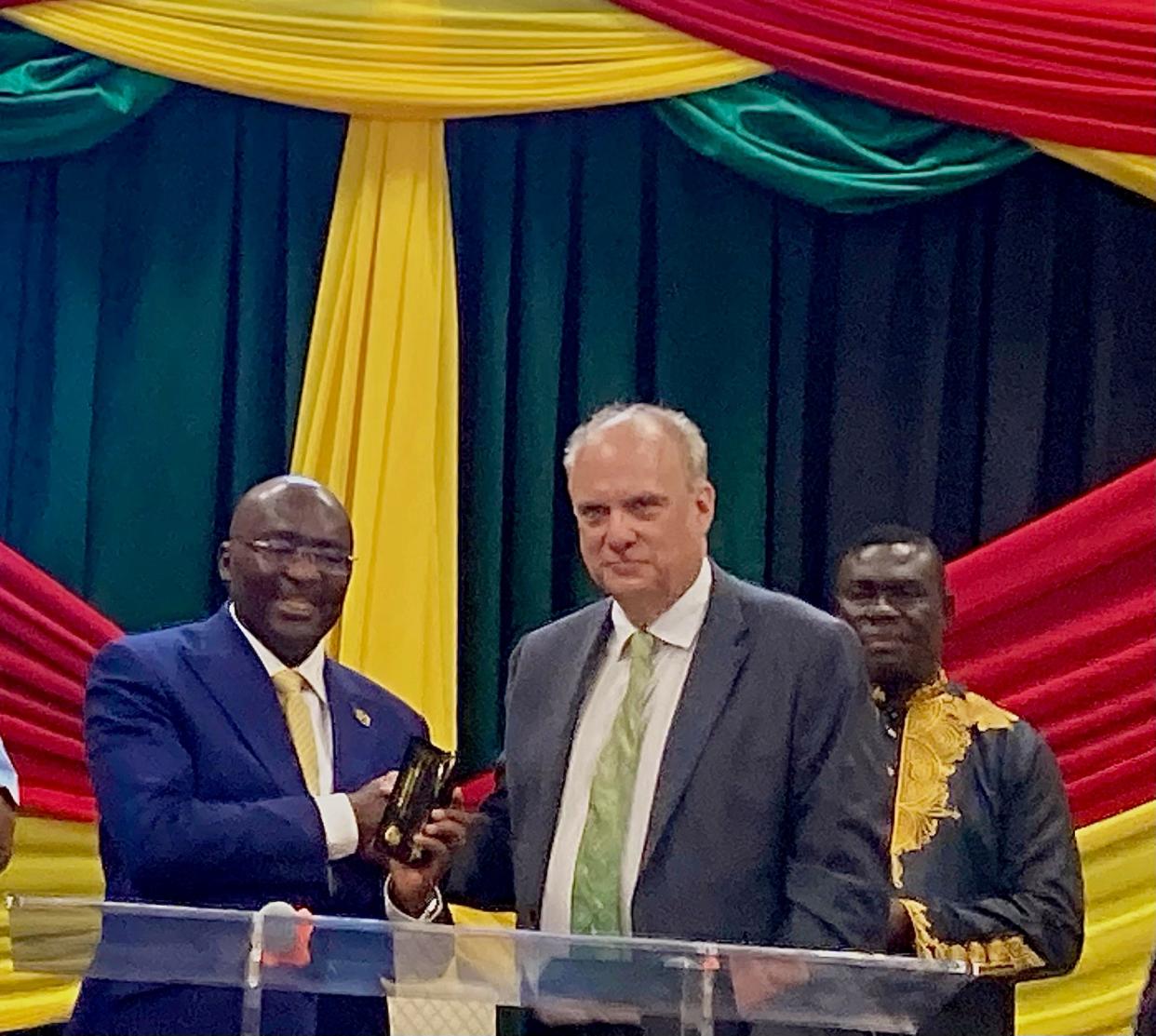Ghanaian VP welcomed to Worcester

WORCESTER - Members of Good Shepherd Methodist Church welcomed Mahamudu Bawumia, the vice president of Ghana, to their congregation Saturday, as the city and the West African nation seek to strengthen ties.
“We love the people of Ghana here,” Mayor Joseph M. Petty said in welcoming the vice president to the church by giving him a key to the city. “Your community is welcome here, we are proud to have you with us today.”
Worcester Regional Chamber of Commerce President and CEO Tim Murray said the city and the nation were interested in community and economic ties and even (getting the biggest amount of applause) a physical tie, as city officials lobby for a possible flight from the Ghanaian capital of Accra to Boston or Worcester.
“We see, every day, in our work the impact of the Ghanaian community,” Murray said.
Ghanaians are the largest single group of immigrants in Worcester, with a community of roughly 5,000 people, according to the 2020 Census. About 100 members of the community of all ages gathered at the church Saturday afternoon to meet, greet and hear from Bawumia, who was led into the sanctuary by children wearing brightly colored traditional dress and waving Ghanaian and American flags.
“It is really an honor and a privilege to be here,” Bawumia said, noting he was in the area for a conference at Harvard. “I like Worcester very much.”Bawumia spoke extensively about his and Ghanaian President Nana Akufo-Addo’s effort to modernize the Ghanaian government and economy through data.
“It’s important we carry people … inside and outside Ghana,” Bawumia, a former banker, told the community. “Many countries on the continent are trying to develop without the benefit of data. Data allows you to make decisions.”
Bawumia said that collecting data, however, is a tough task.
Ghana is dependent prominently on informal and cash-dominated economies, has a barely functioning property address system, few people use banks, and public service has been associated with “corruption and frustration,” Bawumia said.
In fact, he said upon assuming office in 2017, only 4% of the population had a tax-identification number, only 9% paid property taxes, there were large numbers of “ghost names” on the government payrolls, and so few people had credit scores that it bumped up the cost of credit.
“We have lived with these problems for 60-plus years since independence,” Bawumia said.
But unlike other African countries that Bawumia said are relying economically on natural resources, Ghana is focused on microeconomic systems, technological innovations and digitization to “leapfrog” their fellow nations. And that is dependent on data, he said.
“If data is the new oil, data is the new vehicle to digitization,” Bawumia said.
This article originally appeared on Telegram & Gazette: Ghanaian vice president Mahamudu Bawumia visits Worcester church

